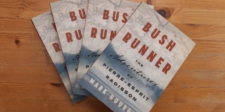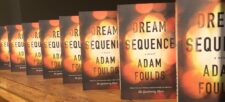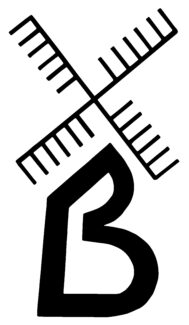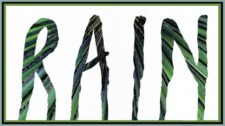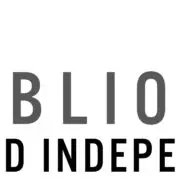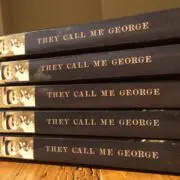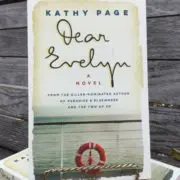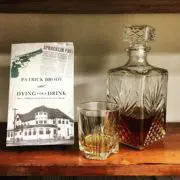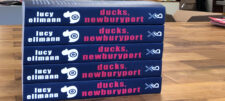
Lucy Ellmann’s Ducks, Newburyport will appear on September 10, and we absolutely cannot wait. We love this book so much. We’d try to explain why, but really . . . just see for yourself:









































When you are all sinew, struggle and solitude, your young – being soft, plump, vulnerable – may remind you of prey. The damp furry closeness in the crowded den sometimes gave her an over-warm sensation akin to nausea, or boredom. Snaking her long limbs as far as space permitted, she longed to be out on her winding path, ranging wide in search of deer. In her dreams she slaughtered whole herds. She sought that first firm clasp on a stag’s neck, the swift parting of its hide, her mouth filling at last with what was hot and wet and necessary.
For all of life is really recoil and leap, leap and recoil.
Alertness was her new mode, but the cubs’ easy slumber was contagious. To be woken, biffed in the face by the paw of a sleeping kitten. She was always briefly astounded, on waking, by their continued presence. They troubled her, they were so needy: if she died, they would die too, and soon. And she would forget them. But for now, she belonged to them. They were not so much a conscious concern as the whole purpose of her being – lives engendered by her body, created inside her and released through pain and panting upon the world. She had borne them, and now she fed them with her milk. They were part of her still.
For the first week they were sprawling, crawling mush to her, demanding gentleness, forbearance, cleanups. The air shook with the vibrations of her purr. She learnt to maneuver her way round their wriggling forms with all kinds of fancy new steps. The more they squirmed, the more adroitly she had to dodge them.
She never left them for more than half an hour. The mere thought of the kittens bleating and scrabbling around back in the den diminished her resolve, made her less surefooted, ruined her joy in the kill. She went hungry, even sank to eating snowshoe hares that ventured near the den. And, once, a disappointing goosander, all feather, feet, beak and bone.
Her infant cubs, drifting back to sleep midway across each other’s backs, never knew how long she was gone, or how far from them she roamed. She might still be inside the den somewhere, just an inch out of reach. In hope, they dragged themselves over to the wall like legless seal pups, their short stubby tails nothing like the muscly ropes they would later become. Little more than mush, they toured the den in slow circles, chirping enticingly, feeling out for any sign of her, just the tip of her giant paw or long whiskers. Longing for her warmth, her tongue, her strong sleek rump, they sought her with determination, for they too were hunters, and brave. Too brave to despair.
*
The fact that the raccoons are now banging an empty yoghurt carton around on the driveway, the fact that in the early morning stillness it sounds like gunshots, the fact that, even in fog, with ice on the road and snow banks blocking their vision, people are already zooming around our corner, the site of many a minor accident, the fact that a guy in a pickup once accidentally skidded into our garage, and next time it could be our house, or a child, Wake Up Picture Day, dicamba, Kleenex, the fact that a pickup truck killed Dilly, the fact that she’d successfully dodged cars for three whole years, the fact that she knew all about cars, but during that time the traffic grew, the fact that it’s crazee now, the fact that after Dilly got killed, the kids painted a big warning sign with a big black cat on it and stuck it right by the fence, but nobody notices it, the fact that they’re all going too fast to see it, ♬ When the cat died we had catnip tea ♬, the fact that failure to yield causes one in five accidents in Ohio, the fact that car crashes are up twenty percent since 2009, haw tree, buckeye, black walnut, hickory, butternut, the fact that Stacy’s old enough to handle the road but the other kids aren’t, the fact that a little boy was killed in his bed just the other day by a skidding car crashing into his house, Ben asleep, the fact that there are two cardinals right now in the lilac tree, brown sugar, the fact that eleven percent of Americans carry on driving when the fuel-tank-empty light comes on, the fact that, boy, you’d think it’d be more like eighty percent, Ronny, chicken feed, the fact that there are macrophages, the fact that I dreamt I flew all the way to India to get a teaspoon of cinnamon but when I got home I realized I needed flaked almonds too, security, holding pattern, go figure, not in my backyard, the fact that we have to do our taxes and try to remember every little bit of income and expenditure, the fact that there was more of the latter than the former, Family Dollar, Baker’s IGA, password, username, “Your card is now active and ready to use,” the fact that not only do we have to calculate our income and expenditure but we gotta figure out how to get more money, and keep on getting money till we’re dead, Medicare For All, the fact that by the time Leo’s old enough to get Social Security it probably won’t even cover the price of a ham sandwich, much less a bottle of wine, the fact that we’re in for a wineless old age, oi veh, OJ, the fact that Leo has to go to Philly tomorrow and I’m not so good on my own, the fact that Ben knows so much for such a little kid, maybe too much, the fact that he says drugs work on a molecular level that can be assessed using logarithms and Schild Curves, but I just pop ’em and leave the rest to chance, breakfast, alarm clock, laundry, Spinbrush, the fact that we have to have a cocktail party and I don’t know what to wear, the fact that the only fun part is deciding on the canapés, cocktails, cock-a-doodle-do, cock, oh my word, the fact that words just pop into my head like that, dear me, the fact that I’ve got to get the dough going for the cinnamon rolls, the fact that at least we’re not having any more dinner parties, the fact that I put my foot down there, ♬ Your feet’s too big ♬, feat of strength, footloose and fancy-free, the fact that our parties are always a big flop anyway because the kids come down in the middle in their onesies and kill all conversation with cuteness, the fact that they look like polar bear cubs and they know it, the fact that sometimes they end up serving the drinks too, the fact that I don’t know what Prof Pranump would make of that, especially since she’s teetotal, tea, Triscuits, Ritz crackers, Saltines, Fritos, Doritos, Frito-Lay, Planters peanuts, Blue Diamond smoked almonds, Prohibition, Some Like It Hot, the fact that soon polar bears and walruses will have nowhere to go, because the polar ice is melting, cheese and pineapple on sticks, cheddar cheese logs, school bus, ground cardamom, dried cherries, zest, the fact that walruses can swim for four hundred miles, sure, but not forever, for Pete’s sake, the fact that animals don’t pride themselves on irrationality the way we do, the fact that, according to Ben, half the mammals on the planet will disappear by 2050, two hundred species a day or something like that, the fact that Ben says everybody on earth will soon be starving or suffocating or dying of SARS or Ebola or H5N1, the fact that H5N1 only has to mutate a few more times and we’re all goners, so maybe it was all for nothing, human achievement, but before that happens, we still have to do our taxes, and Leo needs to fix the garage door, the fact that it keeps sticking, missing button, bathroom grouting, the fact that Stacy would probably approve of a global pandemic, as long as it included us, her nearest and dearest, the fact that I don’t know why we released our poor little terrapins into the pond at Northwestern, the fact that we thought they’d be happy there, free, the fact that nobody ever told us they were tropical terrapins, the fact that we actually thought they’d like swimming free, in that freezing cold pond, the fact that I saw a dead dog with rabies there once, near the pond, so theoretically our turtles could have gotten rabies first, before they froze to death, the fact that we weren’t much good as pet owners, I guess, the bumblebee at Bread Loaf, the fact that what we liked best was going to the Big Building, where Daddy worked, because sometimes you got a free pencil, the fact that we loved climbing on the big painted rock outside, the fact that there was this great big boulder right in front of the building, the fact that I don’t know if somebody dragged the thing there or it was just there when they built the university and they couldn’t get rid of it, the fact that the paint was interestingly chipped and you could see how many layers it had, blue, red, white, yellow, green, Chris Rock, the fact that I think they painted it a new color every year or so, Wolfgang Amadeus Mozart, the fact that Mozart had a starling, the fact that female starlings sing too, not just male starlings, murmurations, Ohio Blue Tip matches, phone call, a big ask, the fact that I don’t know where my cellphone is, the fact that I never know where it is, the fact that cellphones are always trying to escape their owners, the fact that there are earthquakes and tornadoes and tsunamis and volcanic eruptions, the fact that where did I see that red velvet cushion with gold trim, Gillian’s tall bird with sequins, felt and sequins, Christmastime, alone with Mommy in their bedroom at twilight, twi-night double header, sidewinder, sidecar, sidelines, left field, the fact that Stacy never mentions Frank, well, not to me anyway, Rex the Walkie-Talkie Robot Man, the fact that I don’t think she misses him at all, Reader’s Digest, Hardee’s on 2nd Street, Arby’s, Hy-Vee, Mommy and Daddy’s bedroom in the late afternoon, the fact that I always liked sequins on felt, the fact that I don’t think Stacy minds having a stepdad at all, the fact that these days most kids have half brothers and sisters, so they must be pretty used to it, the fact that all in all we’re really just a normal Joy, Pledge, Crest, Tide, Dove, Woolite, Palmolive, Clorox, Rolaids, Pepto-Bismol, Alka-Seltzer, Desitin, Advil, Aleve, Tylenol, Anacin, Bayer, Excedrin, Vitamin C, Kleenex, Kotex, Tampax, Altoid, Barbazol, Almay, Revlon, Cetaphil, Right Guard, Old Spice, Gillette, Q-Tip, Johnson & Johnson, Vaseline, Listerine, Head ’n’ Shoulders, Tylenol, Bayer, Anacin, Safe Owl, Eagle Brand, Jolly Green Giant, Land O’ Lakes, Lucerne, Sealtest, Clover, Blue Bonnet, Half ’n’ Half, Snyder, VanCamp, Wish-Bone, French’s, Skyline, Empress, Gerber, Nabisco, Heinz, Kraft, Quaker Oats, Sunkist, Purina, Vlasic, Oreos, Shredded Wheat, Arm & Hammer, Jell-O, Pez, Sara Lee, Chock Full o’ Nuts, Libby, Pepperidge Farm, Fleischmann’s, Morton, General Mills, King Arthur, Bell’s, Reese’s Pieces kind of household like everybody else, “Houston, we got a problem” . . .

